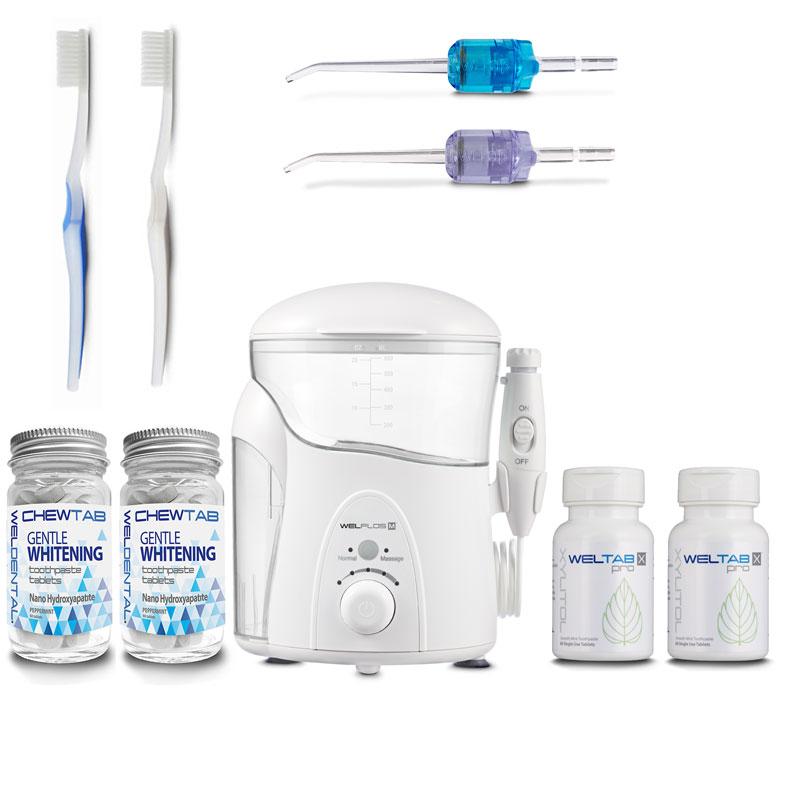
Gingivitis is swelling or soreness of gums around your teeth. The harmful bacteria count increases, causing plaque to build up. Plaque is a sticky, colorless film that forms as harmful bacteria thrive. These bacteria also produce acid, which inflames your gums.
How do you know if you have gum disease?
- Swollen gums, bleeding gums or are puffy and red.
- Gums that have pulled away from your teeth
- Constant bad breath or a bad taste in your mouth
People with diabetes are more likely to get gum disease. Many medications can affect your gums. Any medications that reduce saliva can make gum disease more likely. Poor oral hygiene and smoking can cause an increased chance of developing gum disease.
How can you prevent or reverse gum disease?
Brush your teeth at least twice a day, and water floss with our system. See your dentist regularly. These steps will help reduce your bacterial levels, keep your breath fresh and save your smile.





